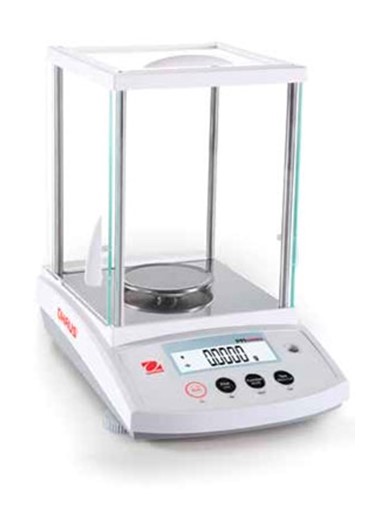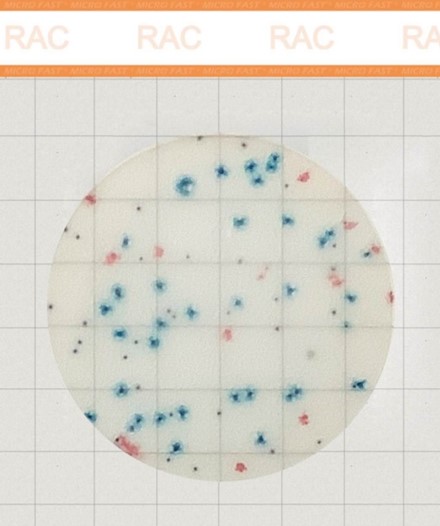"Pilot" for the delivery of prescription drugs was not yet working
A pilot project for the remote sale of prescription drugs, involving their delivery to the final buyer - an individual, which officially started in Moscow, the Moscow and Belgorod regions on March 1, has not yet led to the implementation of this opportunity in practice, two sources in the pharmaceutical business related to RBC told RBC. experiment.
The reason, according to both interlocutors, is that not all the legal acts necessary for the implementation of the "pilot" have yet been issued. Meanwhile, potential participants have already applied for participation in it.
The Ministry of HEALTH, in response to a request from RBC, reported that all the documents, the development of which was entrusted to this department, were adopted on time.
The experiment on remote sale of prescription drugs is being carried out in accordance with the law on amendments to the 61-FZ "On the circulation of medicines" adopted in October last year, which established the rules for conducting a three-year experiment on remote retail sales of prescription drugs.
How is the normative base of the experiment created?
At the end of December last year, the government approved the criteria developed with the participation of the Ministry of Health for including prescription drugs in the list of drugs allowed for sale under the distance selling experiment. Drugs containing narcotic drugs, psychotropic substances and their precursors, as well as potent substances, radiopharmaceuticals and immunobiological preparations were banned from online sale; drugs that must be stored below 15°C, drugs with an ethanol content of more than 25% by volume, and drugs manufactured by pharmacies. Also, the experiment will not apply to drugs subject to quantitative accounting: anabolic steroids, antipsychotics, anxiolytics, antidepressants, hypnotics and sedatives, and drugs used to terminate pregnancy.
As one of the interlocutors explained to RBC, according to the amendments to 61-FZ, the scheme for implementing the experiment, the purpose of which is to develop a mechanism for the retail sale of drugs remotely and to ensure the possibility of further introduction and use of such trade throughout RUSSIA, is as follows. First, the government issues a decree on the experiment - it was signed on February 22, 2023. According to the document, the Ministry of Health has been appointed responsible for the implementation of the "pilot", the experiment is being conducted on a voluntary basis in three regions, both pharmacy chains and medical institutions that have their own websites or contracts with marketplaces, as well as have the ability to deliver medicines in compliance with required temperature conditions, for example, in thermoboxes.
Read pioneerprodukt.by "I'm the boss - you're a fool." How teams turn into “spider banks” If you multitask, you are inefficient: how to fix everything How an investor prepares for a new global crisis. Analyst Opinions Shazam Founder:At the end of February, Minister of Health Mikhail Murashko approved the list of prescription drugs allowed for remote sale. It includes drugs containing 904 active ingredients, including those used for the treatment of HIV, hepatitis C, Duchenne myodystrophy, diabetes mellitus, covid-19 , as well as for the treatment of oncological, oncohematological and other diseases. At the same time, the powers of the Ministry of Health were expanded so that it could carry out methodological support for medical organizations and pharmacies involved in the "pilot" in the preparation, storage and use of prescriptions for drugs, including electronic ones.
At the next stage, according to the amendments to 61-FZ, the executive authorities of the regions where the experiment is being carried out must approve the procedure for selecting organizations for the “pilot” and the rules for information interaction in the formation and use of prescriptions for drugs. The first document appeared in all three regions by mid-March, Irina Krupnova, HEAD of the department for licensing and monitoring compliance with mandatory requirements of Roszdravnadzor, said at the 20th pharmacy summit.
The regulation on information interaction was adopted only in Moscow. According to this document, data exchange will take place between a pharmacy or medical organization and the automated information system "Unified Medical Information and Analytical System of Moscow". Before connecting to this system, medical organizations must be registered in a specialized federal register, and doctors in a similar register of health workers. Similar requirements apply to pharmacy organizations.
In response to a request from RBC, the administration of the Moscow Region reported that the selection of medical and pharmacy organizations participating in the experiment would be carried out by a commission of the Ministry of Health of the Moscow Region. Their list will be posted on its official website. At the moment, applications for participation in the experiment have already been received from the Mosoblmedservis and Pharmacy Chain 36.6. The question of RBC, which information systems will be involved in the implementation of the experiment, remained unanswered.
RBC sent a request to the administration of the Belgorod region.
Market players can apply for participation in the experiment only after the appearance of both documents; they also need to obtain permission to participate in it from Roszdravnadzor. Only after that is it possible to start delivery, summed up the source of RBC.
What stage is the experiment at now?
In Moscow, four organizations joined the experiment. Three of them are associated with Erkapharm Group of Companies - Samson-Pharma LLC, Planeta TM and Erkapharm JSC. Another participant is the pharmacy chain Eapteka. According to her press service, she plans to launch the delivery of prescription drugs in all regions of the experiment at once. RBC's requests to other companies participating in the experiment remained unanswered.
On the websites of all the listed pharmacy organizations, prescription drugs are available for ordering online, but it is not yet possible to arrange their delivery by courier, only self-delivery is possible.
In response to a request from RBC about the reasons for the delay, the Moscow Health Department explained that the speed of connecting pharmacies to the “pilot” slows down the need to first obtain permission from Roszdravnadzor. In this department, RBC was informed that all incoming applications are promptly processed.
The Metropolitan Department of Health promised that the list of participants in the experiment would expand.
According to one of RBC's sources, there is nothing critical in delaying the implementation of the experiment, a similar situation was when the delivery of over-the-counter drugs and the sale of preferential drugs by commercial pharmacies was launched. Market players interviewed by RBC are sure that by the summer the experiment on online sales of prescription drugs will be fully launched. General DIRECTOR of Pharmacy Chain 36.6 Alexander Kuzin believes that the new practice will improve the service for patients. The same is thought in "Eapteka". Kuzin notes that the experiment will help strengthen state control over the circulation of drugs.
According to the marketing agency DSM Group, in 2022, prescription drugs were sold in Russia for 712.56 million rubles, which is 52.8% of the total amount for which both prescription and over-the-counter drugs were sold last year. In Moscow in 2022, prescription drugs were released for 102.98 million rubles. (53.6%), in the Belgorod region - by 7.34 million rubles. (53.9%), in Moscow - by 44.38 million rubles. (51.9%).
History of the Distance Selling Prescription Drug Bill
In the winter of 2021, the Ministry of Economic Development submitted to the government a draft law on the remote sale of prescription drugs, but the document was sent for revision. In June 2022, the Ministry submitted a new version of the bill, adding provisions according to which the Ministry of Health received the right to correct the list of products for distance sales contained in the law. But this initiative also met with objections, since the Ministry of Economic Development proposed to conduct a pilot project in the context of the "digital sandbox" provided for by the law on experimental legal regimes (EPR); this would make it possible to participate in the marketplace project, which was opposed by the State Legal Department of the presidential administration, justifying its objections by the fact that EPR cannot be introduced in cases where a threat to the life and health of the consumer may arise.
In the summer of 2022, the Ministry of Health was appointed responsible for developing the pilot and finalizing the bill. The law prepared by the department on amending the 61-FZ "On the circulation of medicines", concerning the experiment on the online sale of prescription drugs, was adopted last fall. It entered into force on March 1, 2023. The experiment was decided to be carried out in three regions — Moscow, Moscow Region and the Belgorod Region, since they already have electronic prescription platforms, the use of which is necessary for online ordering and delivery of drugs.



























































